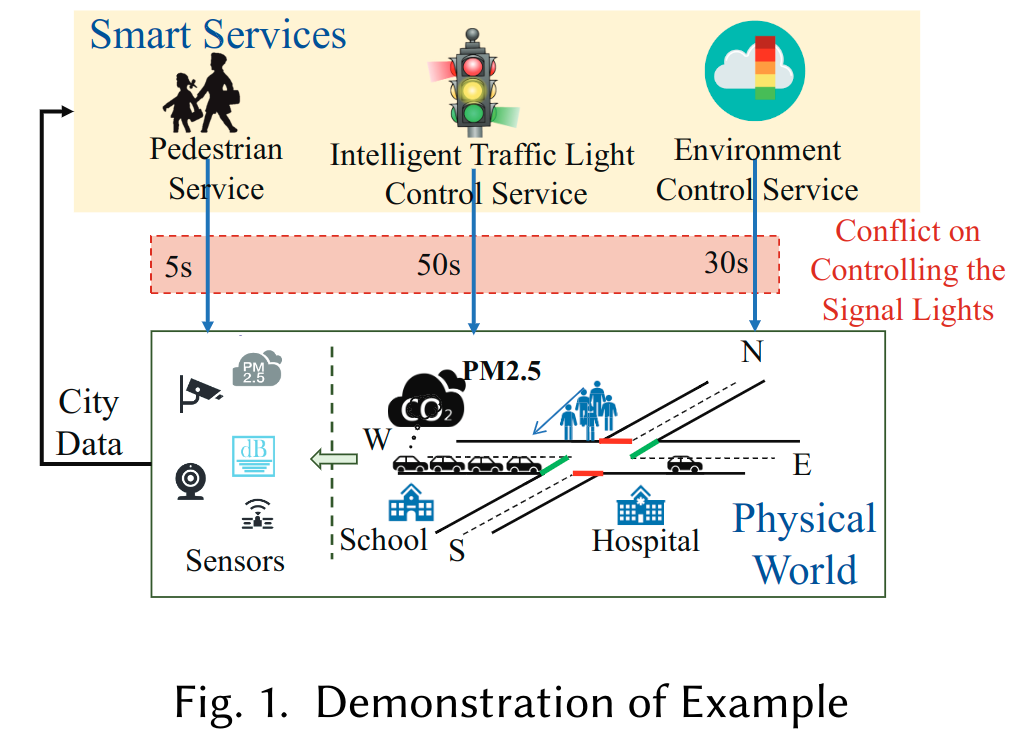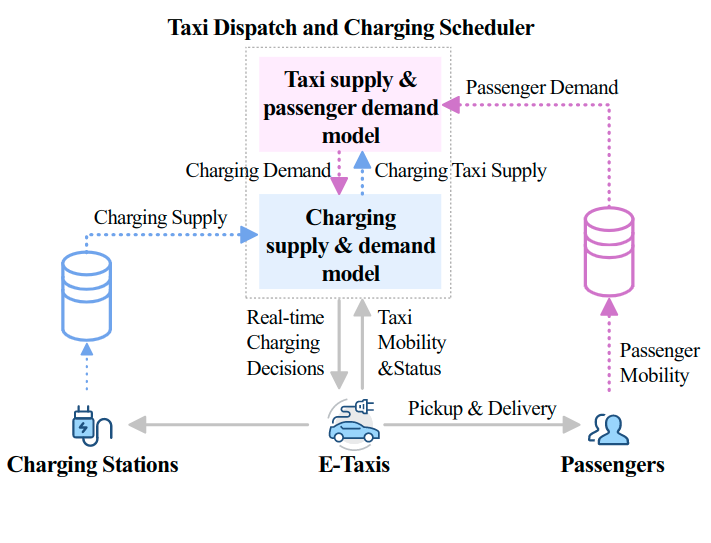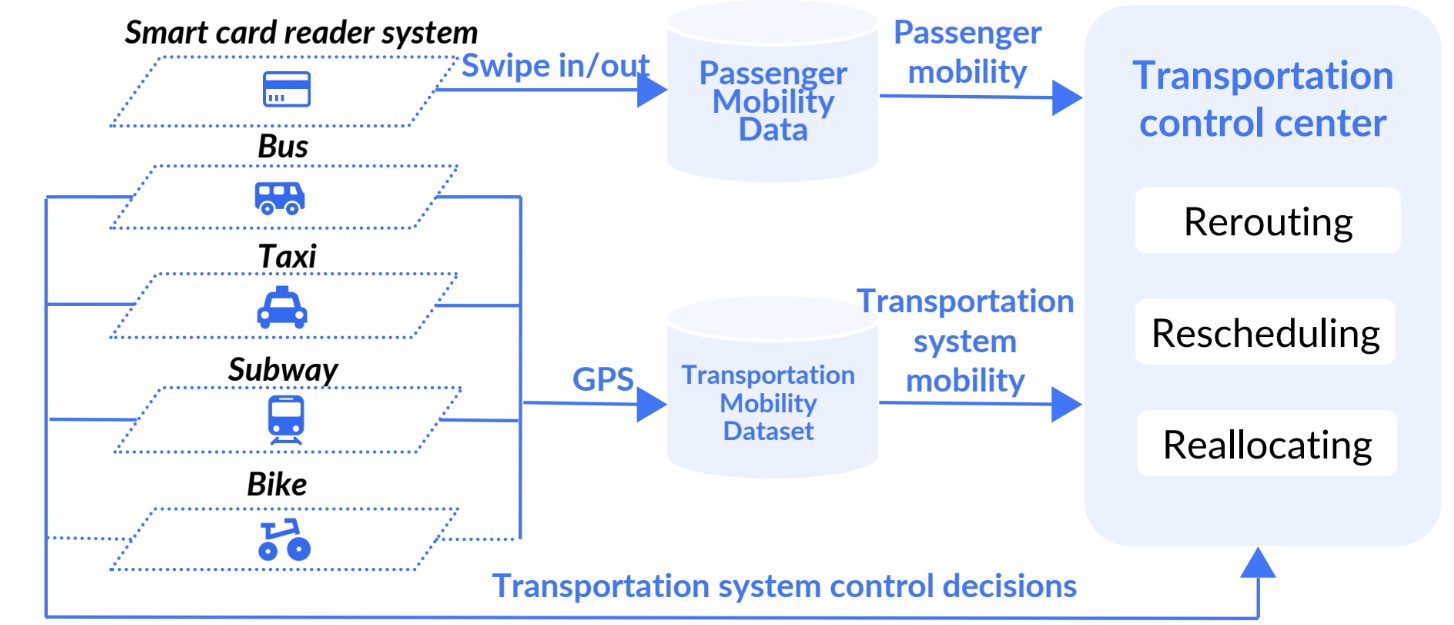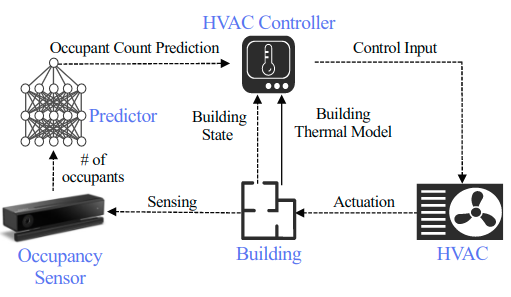Research
Decentralized Conflicts Resolution

We study the problem of addressing the conflicts across services in urban cities. We design a decentralized negotiation and conflict resolution framework named DeResolver, which allows services to resolve conflicts by communicating and negotiating with each other to reach a Pareto-optimal agreement autonomously and efficiently. Our design features a two-level semi-supervised learning-based algorithm to predict acceptable proposals and their rankings of each opponent through the negotiation. [ICCPS 2021, TCPS]
Electric Taxi Charging Coordination

Our analysis reveals that most e-taxi drivers charge their vehicles only when their batteries are low, and more than half of taxi drivers charge their batteries to full on each charge. To satisfy dynamic passenger demand, we propose a new charging strategy: proactive partial charging. We design the p2Charging framework that employs a receding horizon optimization approach to coordinate the charging process and the dispatch process tightly and simultaneously with real-time multi-source data. [ICDCS 2019]

We aim to coordinate an e-taxi fleet for optimizing charging cost with both conventional and renewable energy while maintaining the taxi service quality. We propose SAC, an e-taxi fleet coordination framework to dispatch e-taxis for either charging or serving passengers under spatio-temporal dynamics of renewable energy and passenger mobility. [CDC 2021, ACC 2022]
Dynamic Integration of Heterogeneous Transportation Modes under Disruptions

With passenger trip data collected from a subway system, we analyze the degradation of service quality when the disruption happens to a subway line. We design a service framework called eRoute, which dynamically selects and coordinates heterogeneous mobile systems according to the characteristics of the disruptive events and mobile systems. We design a hierarchical Receding Horizon Control framework to adapt our solutions according to both current and estimated future passenger demand. [ICCPS 2018, TMC]
Occupancy Patten Modeling and Prediction for Effective HVAC Control

With long-term occupant-count data collected from a commercial building, we develop models to capture occupancy dynamics and predict future occupancy patterns. We design an adaptive model predictive controller to minimize inefficient control actions according to different types of misprediction and occupancy states. Our control design provides probabilistic guarantees on the control cost under occupancy prediction uncertainty. [IoTDI 2020]
